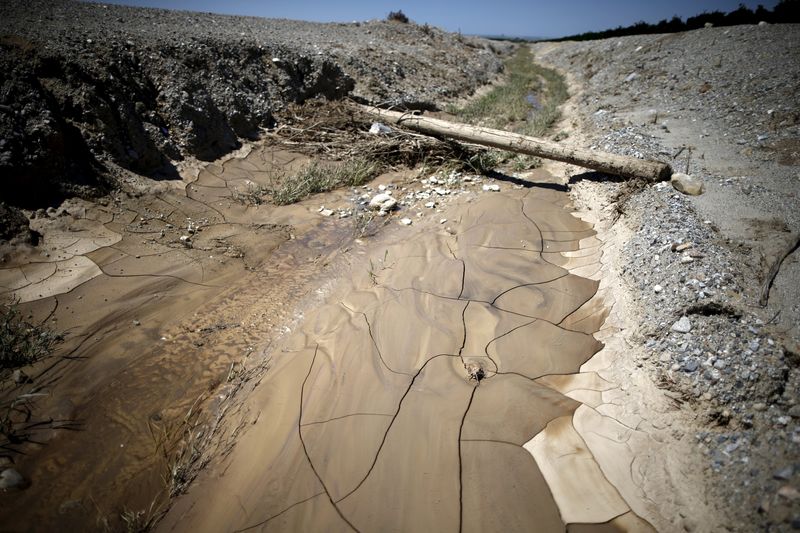(Bloomberg) -- The world may become hotter than previously expected by the end of the century, according to a major study by some 100 of the top researchers in the field in France.
In the worst-case scenario, average global temperatures may rise 6 degrees to 7 degrees Celsius (10.8 degrees to 12.6 degrees Fahrenheit) by 2100, according to the work released by France’s National Center for Scientific Research CNRS, the atomic energy commission CEA and weather office Meteo-France.
That reading is about 1 degree Celsius hotter than previous projections. It’s also well above the 2-degree threshold endorsed by the United Nations. Beyond that level, storms are likely to become much more powerful and sea levels more than 1 meter higher.
The two updated models by the French researchers take a closer look at the regional effects of higher temperatures. They integrate the latest understanding of atmospheric physics and have higher resolution, CEA climate scientist Pascale Braconnot said in a press conference on Tuesday. All of the scenarios generated by the models predict “pronounced” and more severe global warming than the previous research completed in 2012, CNRS said in a statement.
“There’s a jump in quality in the result of the models for numerous indicators,” Braconnot said. “We have more confidence in the new version compared to the previous one.”
Updating the climate models required 500 million hours of calculations by supercomputers at Genci and Meteo-France, the weather office said in a statement. The research will contribute to part one of the Intergovernmental Panel on Climate Change’s sixth assessment report, expected in 2021.
Only one of the updated climate models used by the researchers allowed for the global temperature increase to remain below 2 degrees Celsius by the end of the century.
The assumptions in that best-case scenario, called SSP1 1.9, include carbon neutrality by 2060 followed by a boost for carbon capture technology. That would also require lower population growth, a priority on sustainability and strong global cooperation to reduce pollution.
The worst-case scenario, called SSP5 8.5, assumes rapid economic growth driven by fossil fuels.
In the more pessimistic scenario, all summers in France by the end of the century will be hotter than the 2003 heatwave year, CNRS climate researcher Olivier Boucher said at the press conference.
Across Europe, heat waves will become longer and more intense, while the Arctic will be entirely ice-free during summer in the last two decades of this century.
“In 10,000 years, we haven’t explored anything as major as what we’re doing over a period of 100 years,” Braconnot said. The global temperature difference between the last ice age and the end of glaciation was 3 to 4 degrees Celsius, she said.
